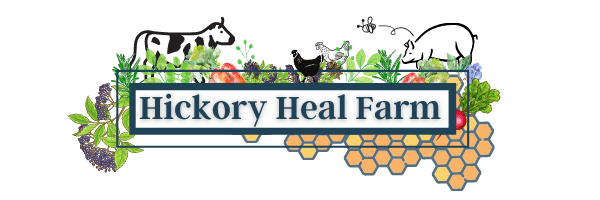
Rotational Adaptive Multi-Paddock (AMP) Grazing: An Overview
Rotational Adaptive Multi-Paddock (AMP) grazing is a regenerative agricultural practice that aligns livestock management with natural ecological processes. Developed and advocated by experts like Dr. Allen Williams, AMP grazing involves moving livestock strategically through multiple paddocks. This practice ensures optimal plant recovery, enhances soil health, and fosters biodiversity by mimicking the grazing patterns of wild herbivores.
Benefits of AMP Grazing
- Enhanced Soil Health
AMP grazing improves soil structure, fertility, and organic matter while fostering beneficial microbial activity. Dr. Allen Williams highlights that this method promotes healthier root systems and increases nutrient cycling, creating resilient and productive soils.
(Teague et al., 2011; Understanding Ag) - Improved Biodiversity
By providing adequate rest-and-recovery periods for grazed paddocks, AMP grazing encourages a diverse range of plant species, which in turn supports pollinators, wildlife, and beneficial insects. This diversity contributes to robust and thriving ecosystems.
(Understanding Ag) - Carbon Sequestration
One of the most significant ecological benefits of AMP grazing is its ability to sequester atmospheric carbon in the soil. This process helps combat climate change while improving soil fertility and health. Dr. Williams notes that regenerative grazing systems can play a key role in mitigating greenhouse gas emissions.
(Machmuller et al., 2015; Understanding Ag) - Water Infiltration and Retention
Healthy, well-managed pastures under AMP grazing absorb and retain water more effectively, reducing runoff, erosion, and the impacts of drought. This contributes to a more sustainable and resilient farming system.
(Understanding Ag) - Economic and Livestock Productivity
Farmers who implement AMP grazing often experience lower input costs and higher livestock productivity. Dr. Williams emphasizes that healthy pastures lead to healthier livestock, resulting in superior meat and dairy quality while improving farm profitability.
(Understanding Ag)
References
- Dr. Allen Williams, Understanding Ag: “Three Principles to Graze By”
- Teague, W. R., et al. (2011). Grazing management impacts on soil carbon and microbial communities. Agriculture, Ecosystems & Environment.
- Machmuller, M. B., et al. (2015). Soil organic carbon sequestration from long-term grazing management in semi-arid grasslands. Ecosphere.
Learn More
To dive deeper into Adaptive Multi-Paddock grazing principles, check out Dr. Allen Williams’ discussion in this video:
Introduction to Adaptive Grazing with Dr. Allen Williams.
AMP grazing offers a powerful solution for producing high-quality food while restoring ecosystems and promoting restorative farming practices.
Sign Up for Emails!
Stay connected with us! We’ll share practical tips and creative recipes to bring herbs seamlessly into your everyday life. You’ll also receive updates on the latest research into medicinal plants and invitations to enriching events. Beyond herbal care, we’re excited to provide education on regenerative farming and gardening practices, empowering you to grow sustainably and reconnect with the land.
Latest Posts
Categories
- Asteraceae Family
- Berberidaceae Family
- Coronavirus COVID-19
- Elohim: The Creator
- Ericaceae Family
- Ganoderma lucidum
- Grants4Plants
- Lamiaceae Family
- Lifestyle
- Lonicera japonica
- Malvaceae Family
- Medicinal Herbs
- Mosschatel Family
- Nature
- Passifloraceae Family
- Photography
- Regenerative
- Rubiaceae Family
- Soil Health
- Uncategorized









